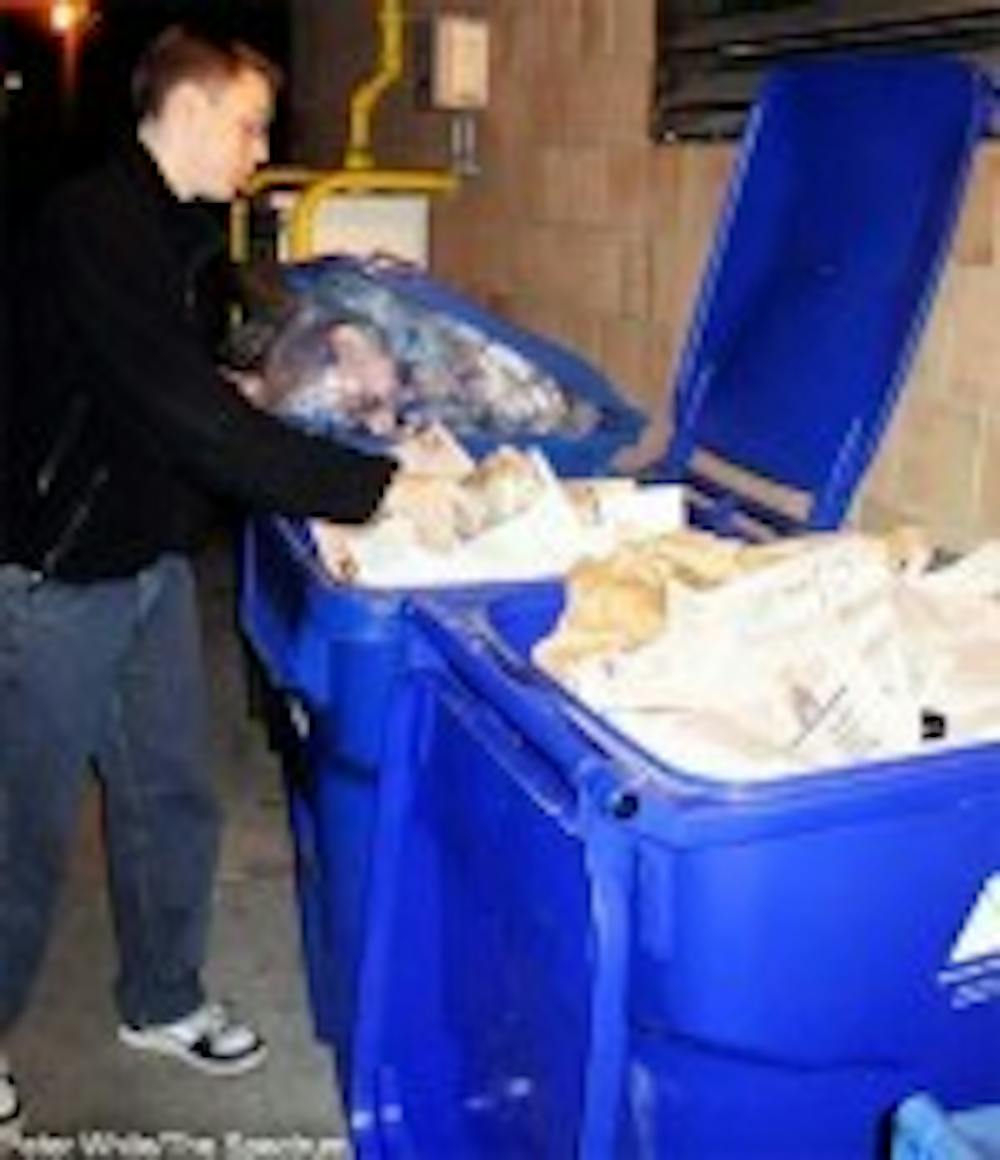For UB, recycling means more than taking care of the planet -- it also means cold hard cash.
UB now recycles 34 percent of its total refuse, and that increased recycling helps UB to cut costs, according to Erin Cala, environmental educator for UB Green, the environmental division of the office of university facilities.
UB pays the Lewiston-based Modern Disposal Corporation for normal garbage pickup by the ton. Therefore, the more UB students throw into campus garbage cans, the more the university pays.
Yet for its recycling program, UB pays a flat rate to pick up all its recyclable materials - so UB can recycle as much as it wants at one price.
UB pays approximately $62,000 per year for paper and cardboard recycling, and $2,400 for materials such as plastic, glass and metal, according to William Marshall, grounds supervisor for UB Facilities.
Between April 2001 and March 2002, the latest data provided by William Bagley, UB recycling coordinator, UB recycled 1,561 tons of material, including 561 tons of paper.
The university's waste totals about 4,700 tons per year, including 3,100 tons of trash each year -- about 8.5 tons per day.
According to Bagley, a fleet of three university-operated garbage trucks carries the refuse to a landfill twice every day.
He said that if UB creates less trash, the university would save thousands of dollars each year because of fewer trips to the landfill, fewer trucks used and less fuel and maintenance for those trucks.
According to Marshall's calculations, if UB increases its percentage of refuse recycled by 10 percent, it could mean a savings of between $20,000 and $30,000.
One obstacle to a perfect recycling track is contamination. According to Cala, if a bag of recyclables is contaminated with an item such as a greasy wrapper or an un-rinsed can, the entire bag must be thrown away. Additionally, pizza boxes, a popular item at any college, cannot be recycled at all as a result of the food grease they may contain.
To boost recycling on campus, UB Green has placed mobiles over recycling stations that demonstrate which items are recyclable.
Due in large part to fire codes, the placement of recycling bins has to be decided carefully. While high-traffic locations are optimal, sometimes people who work at UB object to having bins near their offices.
"It's really ironic," said Cala. "People say 'I'm an environmentalist. I write letters to the government,' and when we bring up placing bins in their area they say, 'I don't want a garbage station near my office.'"
Cala explained that UB Facilities and UB Green are doing their part to improve recycling on campus, but better results will be seen if more students become educated recyclers.
"Students should go to the administration -- they pay the bills," Cala said. "If students start putting the push it makes our job a lot easier because we can then come back and say the students want it."





